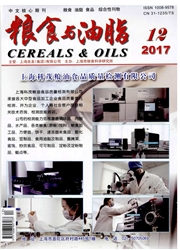

 中文摘要:
中文摘要:
以大豆蛋白、橡胶蛋白和小桐子蛋白制备蛋白基胶黏剂,并对该三种蛋白基胶黏剂的胶接性能和固化性能进行分析和评价。研究结果表明:(1)从资源和现有技术角度来讲,以小桐子蛋白和橡胶蛋白取代或部分取代大豆蛋白制备蛋白基胶黏剂具有可行性。(2)大豆蛋白、小桐子蛋白和橡胶蛋白基胶黏剂胶合板干强度均能满足相关国家标准的要求,仅橡胶蛋白胶胶合板耐温水强度达不到标准;小桐子蛋白和橡胶蛋白中所含的其他活性物质可能影响降解后蛋白的活性和胶黏剂的交联密度,并间接影响胶黏剂的耐水性能。(3)大豆蛋白、小桐子蛋白和橡胶蛋白基胶黏剂表现出类似的固化特征,其中大豆蛋白和橡胶蛋白基胶黏剂的固化温度较低且相差不大,小桐子蛋白基胶黏剂的固化温度相对较高且受升温速率影响较大。
 英文摘要:
英文摘要:
Three kinds of protein-based adhesives were prepared from soy protein, Hevea brasiliensis protein and Jatropha curcas L. protein, analysis and evaluation of the bonding performances and curing properties of the three adhesives were studied. The results indicated that:(1) From the perspective of resources and existing technology, it was feasible to prepare protein-based adhesives by replacing or partially replacing soy protein with Jatropha curcas L. protein and Hevea brasiliensis protein.(2) The dry bonding strength of these three kinds of protein-based adhesives could meet the requirments of national standards of plywoods, only the wet strength in warm water of the plywood prepared from Hevea brasiliensis protein adhesive could not meet the standards. Other active substances in Hevea brasiliensis protein and Jatropha curcas L. protein might have bad effects on the activities of degraded proteins and the crosslinking densities of adhesives, which blocked the water resistance indirectly.(3) The curing characteristics of these three protein-based adhesives were similar, the curing temperatures of soy protein-based adhesive and Hevea brasiliensis protein-based adhesive were similar and relatively lower, the curing temperature of Jatropha curcas L. protein-based adhesive was high and it was greatly affected by heating rate.
 同期刊论文项目
同期刊论文项目
 同项目期刊论文
同项目期刊论文
 期刊信息
期刊信息
